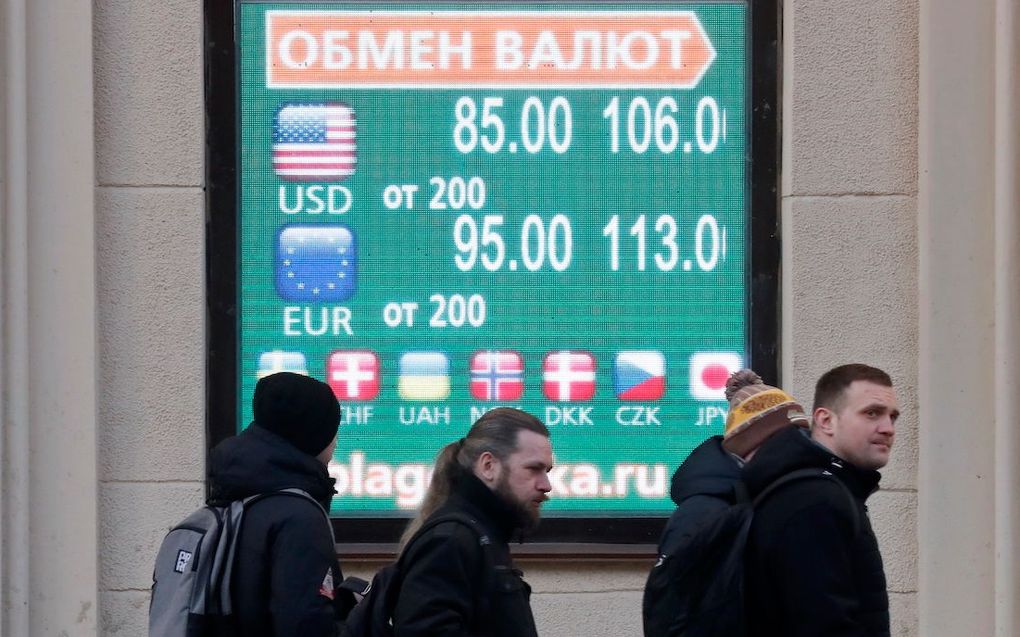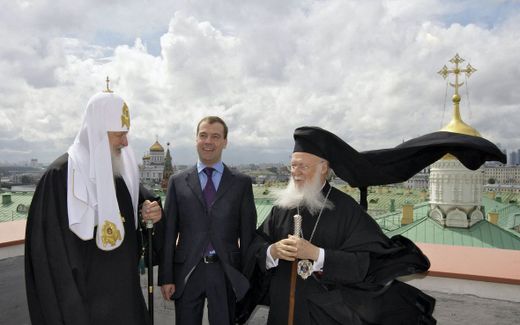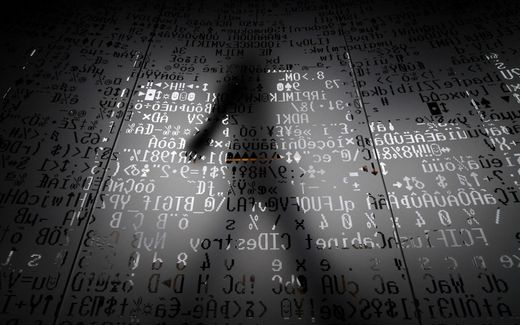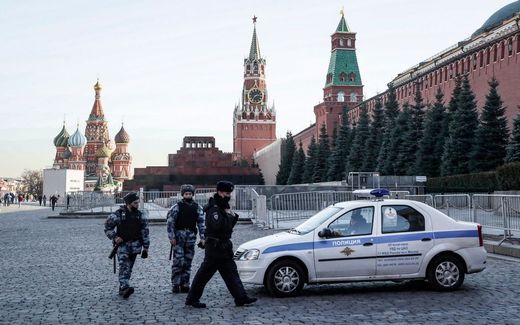Weekly column from EU: Putin was able to unite Europe in one move
04-03-2022
Christian Life
Marco Gombacci, CNE.news

The Russo-Ukrainian conflict has a direct impact on the economy. Photo EPA, Anatoly Maltsev
Christian Life
Tanks and shelling of civilians in Ukraine are changing history. When Russia attacked and invaded Ukraine on the morning of February 24th, I was in Washington DC to meet with think tanks, NGOs, and high-level officers of the U.S. Administration.
They warned us. The U.S. intelligence was the first to alert the European partners that an invasion of Ukraine was imminent. But in Europe, we reacted too softly. We were still thinking about what happened seven months ago in Afghanistan, where the U.S. left, with images of a government and intelligence not precisely that of a powerful country.
In the many meetings I attended, they insisted on the real threat each time. After not having correctly communicated to the European partners the withdrawal from Afghanistan and the Aukus agreement (a trilateral security pact between Australia, the United Kingdom, and the United States, announced on September 15th 2021, for the Indo-Pacific region), now the Biden administration has set up daily coordination efforts with the allies.
Marco Gombacci was born in 1985 in Trieste, Italy.

He works as EU and foreign affairs analyst. He reported about the Mosul offensive (Iraq), the battle to reconquer Raqqa, from Deir Ezzor (Syria) and Nagorno Karabakh (during the conflict between Armenia and Azerbaigian).
He authored the book “Kurdistan. Utopia di un popolo tradito” (ed. Salerno, 2019).
Opinions and articles have been published by Wall Street Journal, Bloomberg, The Daily Express, TgCom45, TG5, Rai1, RaiNews 24, TRECE TV, FRANCE24, La Libre, Le Temps, and many others.
And indeed, the U.S. was first to see the actual invasion, but Europe did not listen as attentively as it should have had. Indeed, some EU countries are primarily dependent on Russia for gas. The EU is the largest importer of natural gas in the world, according to the Directorate-General for Energy for the EU, with the largest share of its gas coming from Russia (41 per cent), Norway (24 per cent) and Algeria (11 per cent). Germany and Italy import respectively 49 per cent and 46 per cent of their gas from Moscow.
Excluding some goods from sanctions
These are numbers that German and Italian politicians had to consider when they arrived in Brussels to negotiate rounds of sanctions against Russia and its leadership. The European Union reached an agreement within days. Each EU member state started to propose excluding some goods from the sanctions. Belgium asked to exclude the diamonds sector; Italy asked to exclude luxury goods, Germany gas and so on. But when it became clear that a total invasion of a large scale was taking place, even the most reluctant leaders dropped their requests (or at least some of them) to reach one of the most powerful packages of sanctions in the history of the European Union.
While the Russian troops started to bomb Mariupol, Kharkiv and Kyiv, the European Union changed its attitude. For the first time in history, Brussels decided to finance the purchase of weapons to a third country, Ukraine. The EU became a geopolitical entity. Putin’s aggression also provoked another significant change in the 27-nations bloc: Germany decided to sharply increase its spending on defence to more than 2 per cent of its economic output.
With one move, Putin managed to unite European countries and allow the EU to arm and defend another country. Not precisely a sharp move on the Russian side.
Moreover, the sanctions approved by the EU and the U.S. are really hitting the Russian economy. The EU has excluded Russian banks from SWIFT and intervened on the international reserves (around 630 billion dollars) of the Russian Central Bank, paralysing the country and preventing it from using funds to react to the economic sanctions in place since the beginning of the invasion.
This has caused such hysteria in the world’s financial markets that the Moscow Stock Exchange has been forced to close. On Thursday, the ruble’s value, the Russian currency, fell to unprecedented levels. At the beginning of the invasion, 1 dollar was traded on the money markets for 80 rubles, today a maximum of 1 dollar for 118 rubles.
Some Russian banks are close to bankruptcy
In response, the Russian Central Bank, unable to use its international reserves, raised interest rates from 9.5 per cent to 20 per cent in an attempt to make deposits more attractive, protect the Russian currency and citizens’ savings. The tension led to something often seen in times of crisis, a rush to bank counters: the amount of cash in circulation in Russia reached a record of 1.4 trillion rubles.

Some Russian banks in Europe, such as Sberbank Europe, are close to bankruptcy. Many Western investments in the Federation have been withdrawn. Several energy groups worldwide have sold their stakes in Russian companies and divested capital. However, Chinese banks are willing to throw a lifeline to Russia in this moment of economic tension (and it is not the first time). Already in early 2014, in the wake of the Russian annexation of Crimea, China had stepped in to support Russia.
China and Russia are building a “plan B” together. Since the annexation of Crimea, the two countries have steadily reduced their use of the dollar in their bilateral trade, which reached a record high of over 145 billion dollars in 2021. But has Russia broken free from the dollar-dominated Western system? Not quite: 36.6 per cent and 47.6 per cent of Russia-China trade are still conducted in dollars and euros, respectively. However, this may no longer be the case in the near future.
Russia and China should worry us
And this should worry us, as European citizens. Despite the reasonable attempts of the Western countries to counter Russia’s aggression in Ukraine, an alliance between Russia and China, two illiberal and non-democratic powers, could endanger the stability of the world that we’ve known until now.
Related Articles





